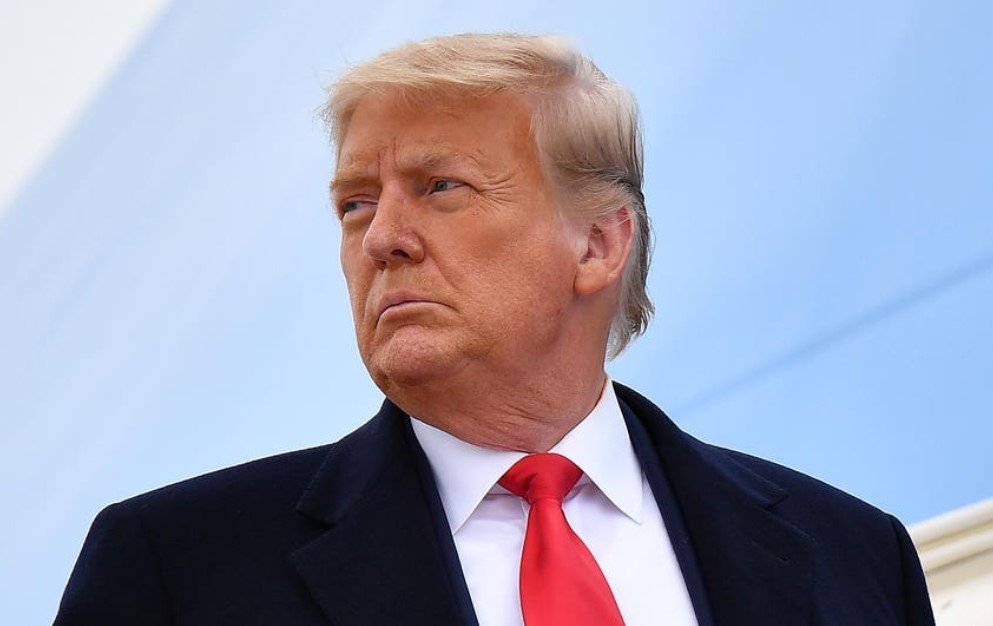Former President Donald Trump appeared in a federal court in Washington on Thursday, where he pleaded not guilty to four charges of election subversion, stemming from his alleged attempts to stop the certification of votes in the 2020 presidential election. Trump is accused of conspiring with his former attorney general, William Barr, and other officials to pressure state and local officials to overturn the election results in favor of Trump, who lost to Democrat Joe Biden by more than 7 million votes.

The charges, brought by special counsel Jack Smith, who was appointed by Congress to investigate Trump’s actions after the January 6, 2021, Capitol riot, are the most serious and unprecedented ones faced by a former president in US history. They carry a maximum penalty of 20 years in prison and a $250,000 fine for each count. Smith has also indicted Trump on two other cases related to the alleged mishandling of classified documents and obstruction of justice.
Trump, who arrived at the courthouse in a motorcade and was greeted by a crowd of supporters and protesters, maintained his innocence and denounced the charges as a “witch hunt” and a “hoax” orchestrated by his political enemies. He also repeated his baseless claims that the election was rigged and stolen from him, and vowed to run again in 2024. He said he was confident that he would be exonerated and that the American people would see the truth.
Trump faces legal battles in multiple jurisdictions
The arraignment in Washington was not the only legal trouble for Trump on Thursday. He also had to appear via video conference in a court in New York, where he faces fraud and tax evasion charges related to his business dealings. The Manhattan district attorney’s office has accused Trump and his company, the Trump Organization, of inflating the value of their assets to obtain loans and tax benefits, and concealing income and payments to employees and consultants.
In addition, Trump is facing several civil lawsuits from various plaintiffs, including former White House aide Omarosa Manigault Newman, who accuses him of violating a nondisclosure agreement; former porn star Stormy Daniels, who claims he defamed her over an alleged affair; and two women who allege he sexually assaulted them. Trump has denied all the allegations and said he would fight them vigorously.
Trump’s trials could have political implications for 2024
The legal battles facing Trump could have significant consequences for his political future and for the Republican Party, which remains largely loyal to him despite his divisive and controversial presidency. Trump has not ruled out running for president again in 2024, and has been holding rallies and endorsing candidates who support his agenda. He also has a loyal base of supporters who believe his false claims about the election and view him as a victim of persecution.
However, some analysts have argued that Trump’s trials could damage his reputation and credibility among the broader electorate, and expose him to potential criminal liability that could prevent him from running or holding office. They also suggest that the trials could distract him from his political activities and fundraising, and create divisions within the GOP between those who back him and those who want to move on from him.
On the other hand, some observers have speculated that Trump could use his trials as a platform to rally his supporters and portray himself as a martyr who is fighting against a corrupt and biased system. They also point out that Trump has survived many scandals and controversies before, and that he still enjoys strong popularity among Republicans and conservatives. They argue that Trump could use his trials as an opportunity to attack his opponents and mobilize his base for the next election.
The trials are expected to last for months or years
The trials involving Trump are likely to be lengthy and complex, involving multiple witnesses, documents, motions, and appeals. The trial in Washington on the election subversion charges is scheduled to begin on January 8, 2024, almost four years after the Capitol riot that sparked the investigation. The trial in New York on the fraud and tax evasion charges is expected to start later this year or early next year. The civil lawsuits could also take months or years to resolve.
The trials will also pose logistical and security challenges for the courts and the authorities, as they will attract intense media attention and public interest. The courts will have to balance the rights of the defendant, the plaintiffs, the jurors, and the public, while ensuring a fair and orderly process. The authorities will have to provide adequate protection for Trump and others involved in the trials, as well as prevent any potential violence or disruption from his supporters or opponents.
The trials will also test the strength and integrity of the US democracy and justice system, as they will deal with unprecedented and sensitive issues involving a former president who still wields considerable influence and power. The trials will also reflect on the state of the nation’s political culture and discourse, as they will reveal how deeply divided Americans are over Trump’s legacy and role in their society.







